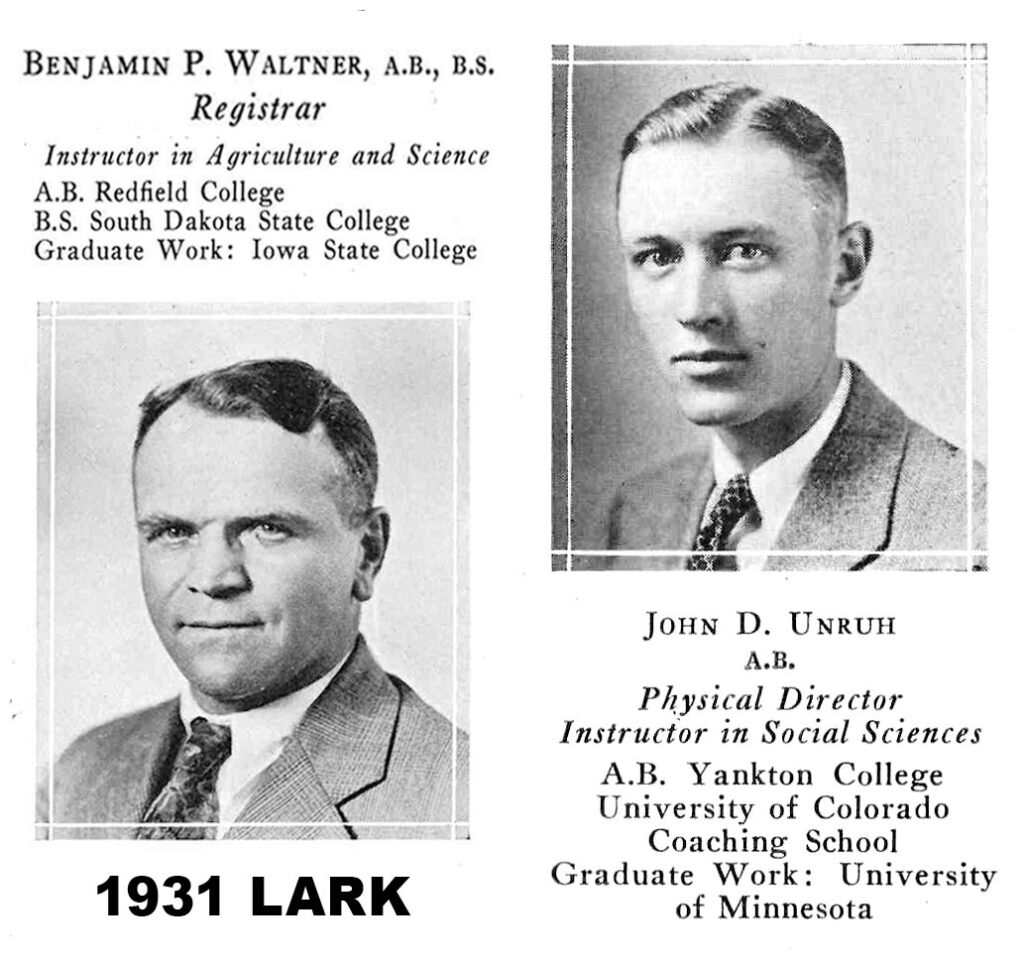taken from a Facebook post by Freeman (S.D.) Academy
The financial challenges that emerged for Freeman Junior College and Academy in the early 1930s continued through the decade. Accumulated interest brought school debt to its highest peak of $63,212.27. “This adverse financial trend was to continue and mount to discouraging proportions during the years to follow,” wrote author and historian Marie J. Waldner in “For Half a Century – the Story of Freeman Junior College 1900-1950.”
We know, of course, that the school weathered the storm.
Waldner cites the leadership of two men who helped guide those successful efforts, John D. Unruh and Benjamin P. Waltner.

John D. Unruh, who graduated from Freeman Academy in 1922, joined the faculty as athletic director in 1930. In 1933, he was named president of the school; a position he held until 1948. When the school celebrated its 50th anniversary, Waldner noted, “Unruh influenced and guided the school for one-third of its existence.” “Keeping the school going, getting a huge debt paid and passing on a completely solvent institution was no small achievement,” she says of Unruh’s tenure. “The fact that, while preoccupied with this financial struggle, the school gained much in academic standing and intellectual responsibility, was an even greater accomplishment.” “In a position to do much for the school and through the school to the community, he made good use of that opportunity.”
Twice during Unruh’s presidency, Benjamin P. Waltner was named acting president – 1935-36 when Unruh was granted a leave of absence for further study, and 1938-39 when he worked with Mennonite Central Committee. Waltner, who graduated in 1907, returned to his alma mater in 1919 as a member of the staff. His 35 years there included being an instructor, registrar and acting president, including the tumultuous 1930s. “In every capacity throughout this time, his sincerity of purpose was unwavering,” Waldner wrote. “For long loyal and devoted service to Freeman Junior College and to the cause of Christian education, his record is unequaled.”
(Credit to Heritage Hall Museum & Archives)

